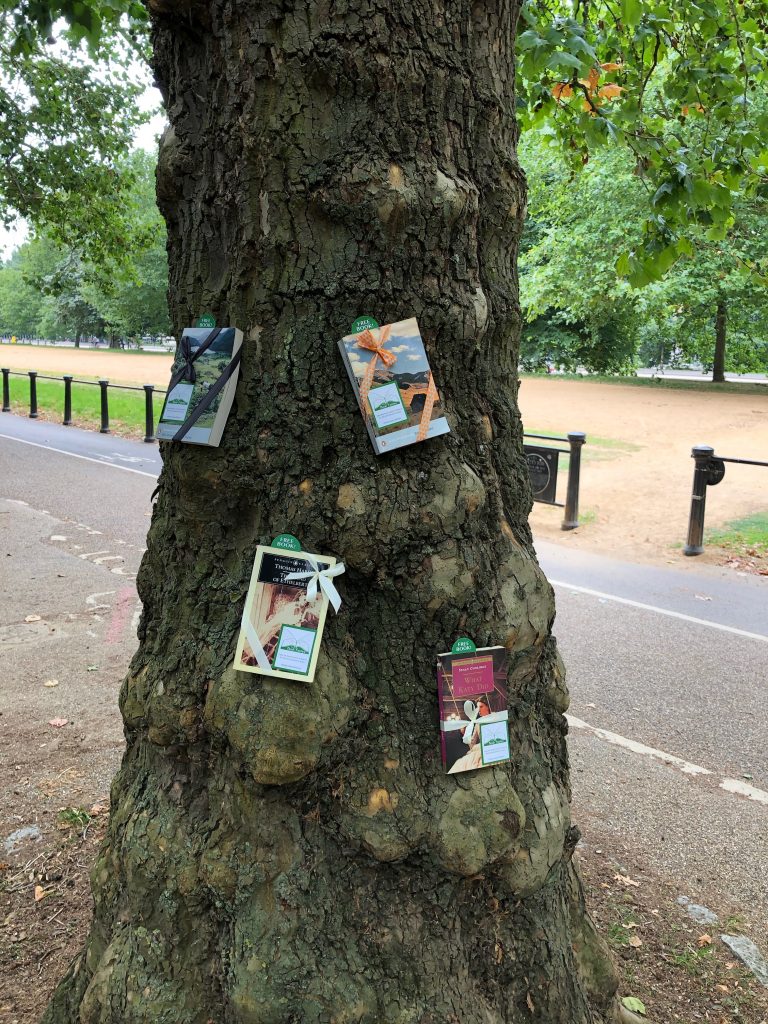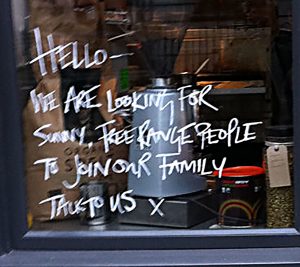Take this book…
‘I came across a magazine with an inscription that said: “Civilisation flourishes when men plant trees under which they themselves will never sit.” But to me it’s not only plants – putting something in somebody’s life, a young person’s life, is the same as planting a tree that you will not cut and sell during your lifetime. That has helped me a lot in my work. Sometimes the more you give, the more you get.’
So says James Barnor, on the wall at the start of his arresting Accra/London retrospective. Indeed, looking at this master photographer’s work, you can see that he gives a great deal of himself to get images that really let the personalities of his subjects shine through.
Walking homewards from the exhibition through Hyde Park, in one of those happy moments of timely connection, I came across a tree bearing books for people to freely pick:

These particular offerings are part of a wider network of sharing, courtesy of The Book Fairies. “Take this book, read it & leave it for the next person to enjoy” says the sticker on each one.
Civilisation does indeed flourish when men plant trees under which they themselves will never sit – and when people plant books on trees for the world to enjoy.
